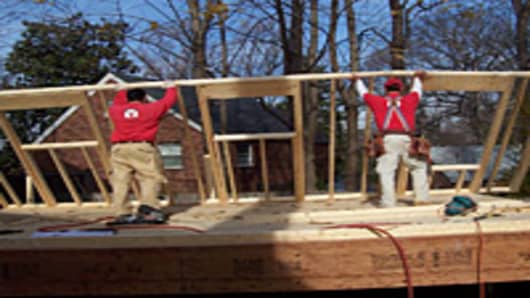With consumer confidence weak and getting weaker, and demand for housing showing no signs of resuscitation, home builders today are not only changing their building models, they're changing their business models; that includes returning to a practice that brought many of the builders down in the first place.
During the heydays of the housing boom, builders put up as many homes as they could finance, with little regard to future demand because there were plenty of buyers milling about their model homes. They built on spec (speculative), assured that they could sell easily, and they could, until they couldn't.
Over the past few years, spec building was close to non-existent, especially for small to mid-sized private builders. For one thing, they couldn't get the financing for it, for another, they had no assurance that they could sell the properties in a timely, cost-efficient manner. But now the pendulum may be swinging back again, not due to demand, but due to the new consumer in today's market.



